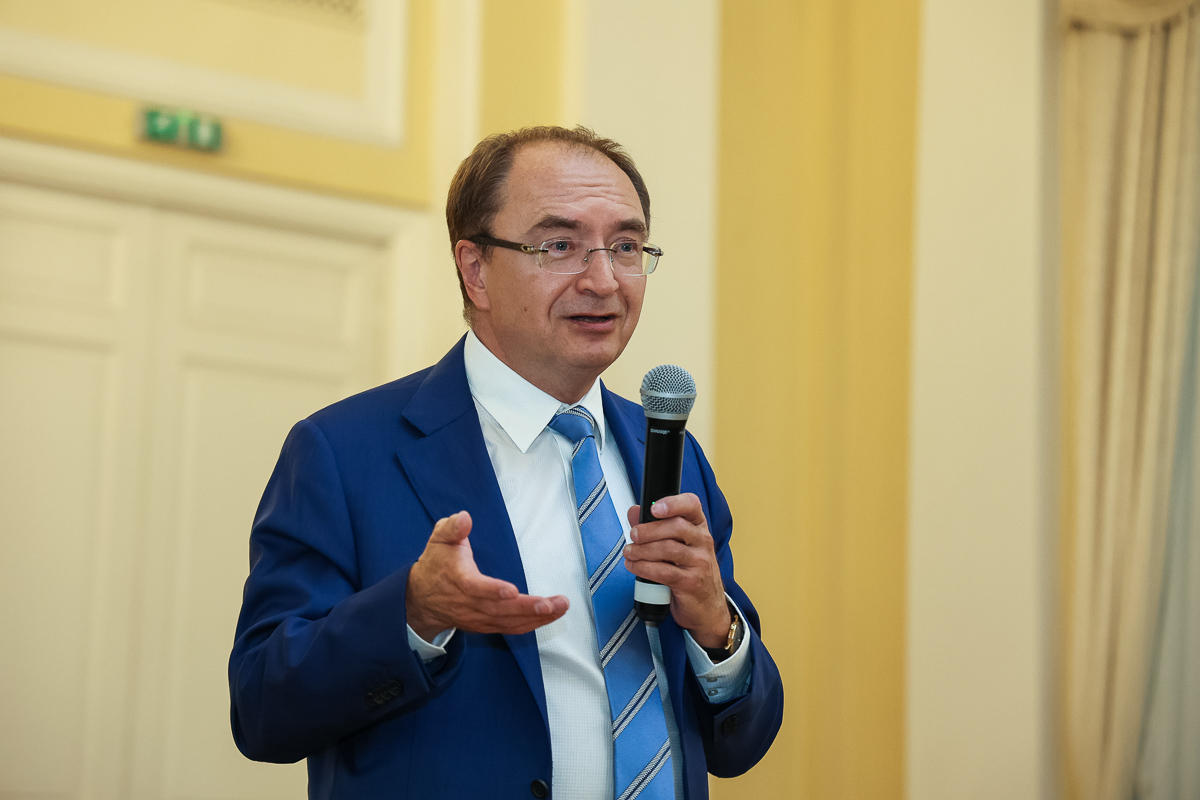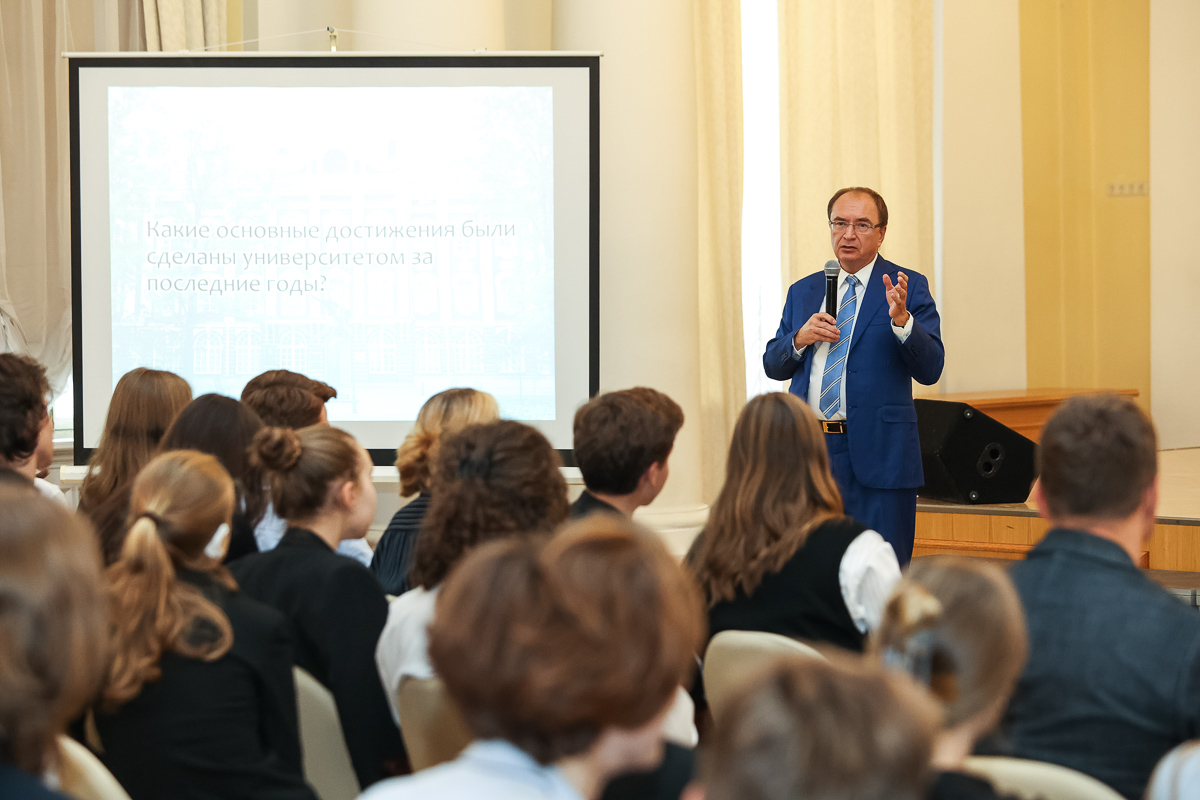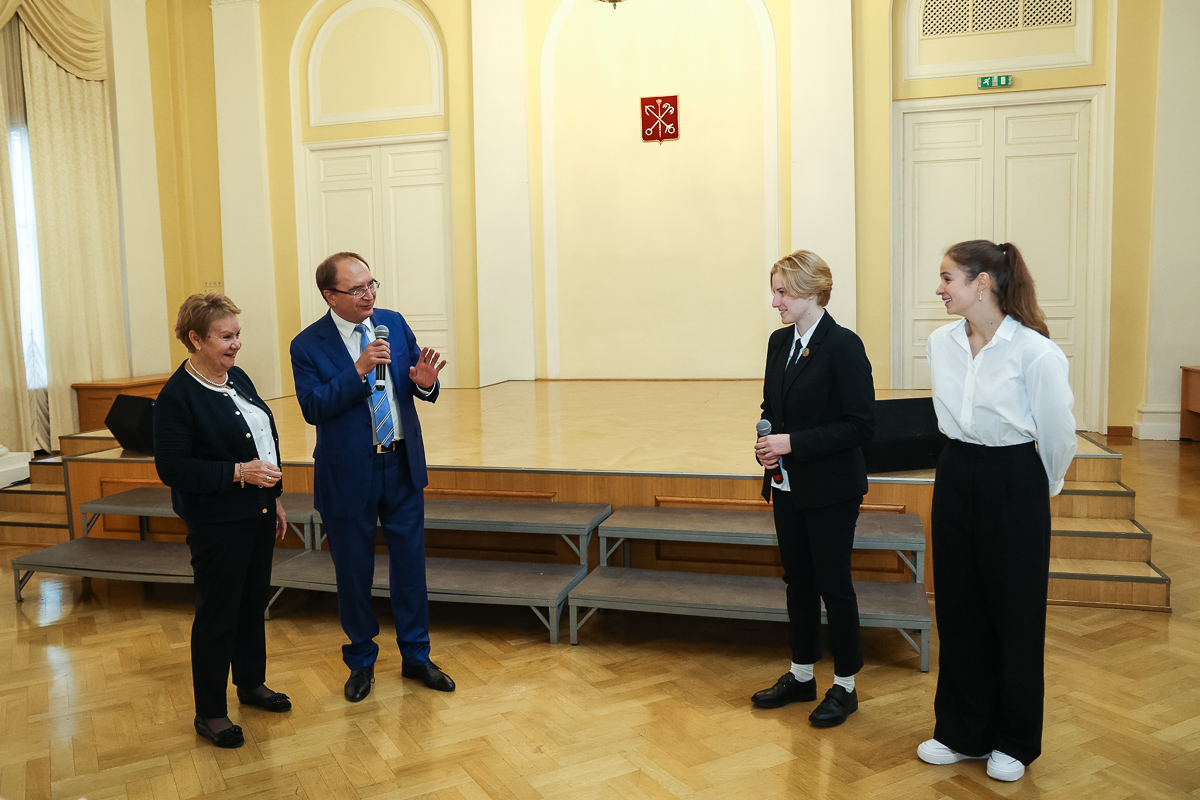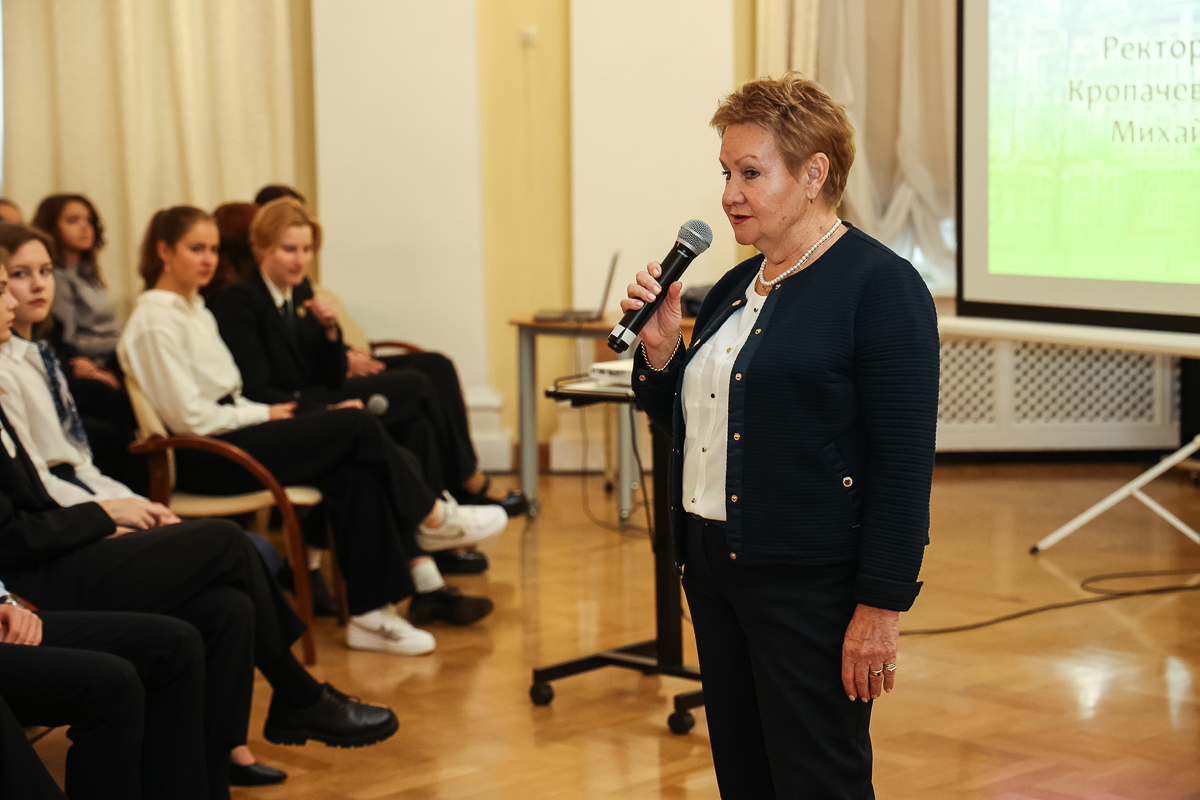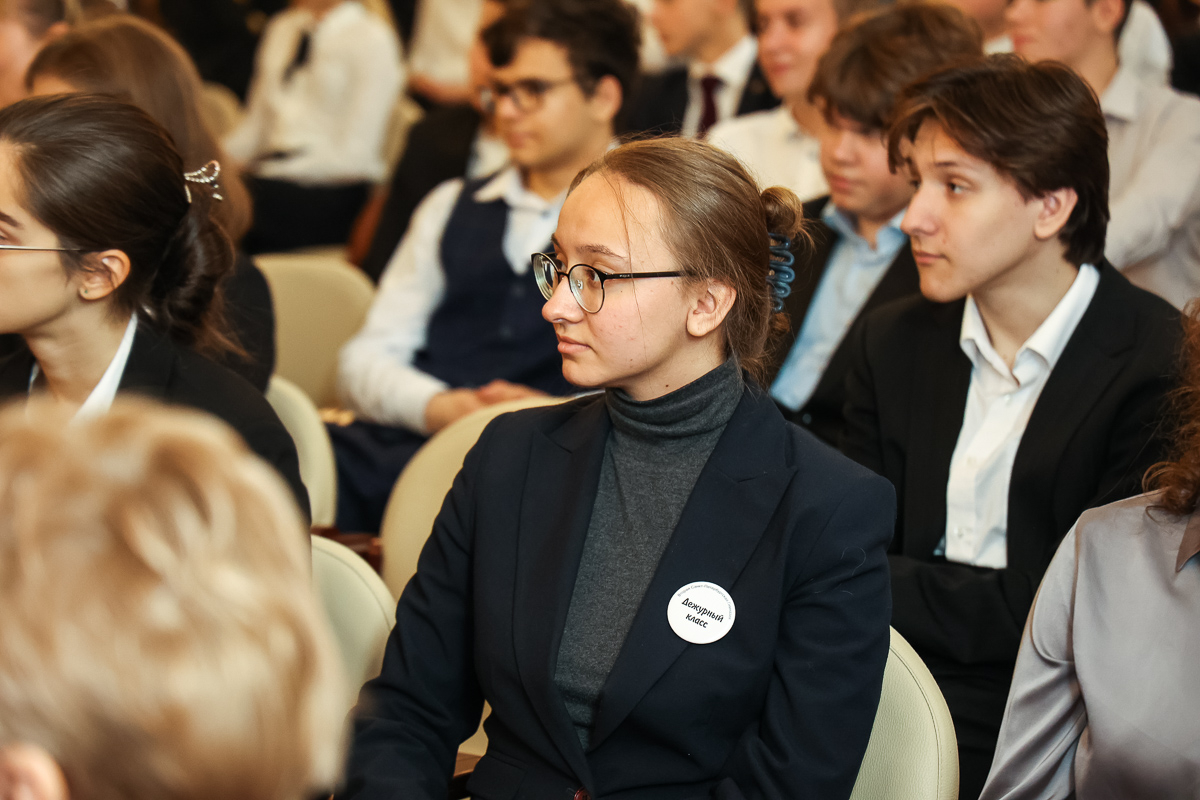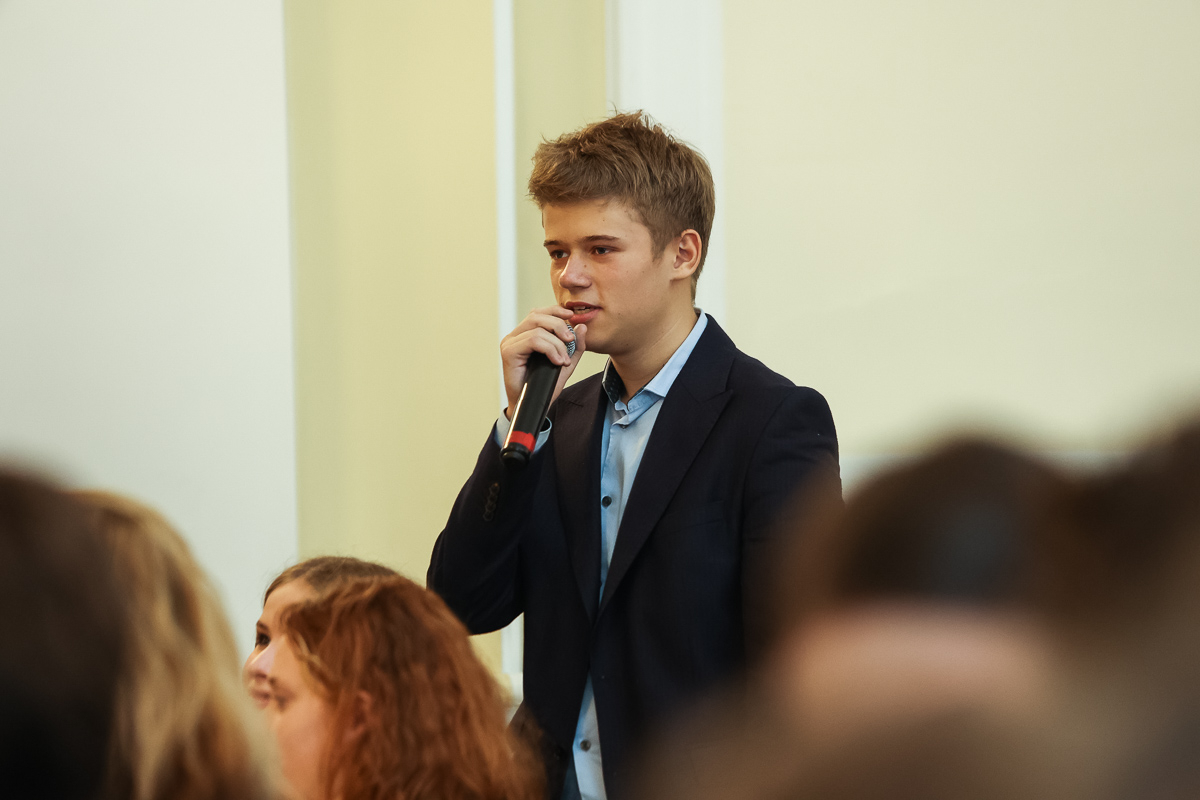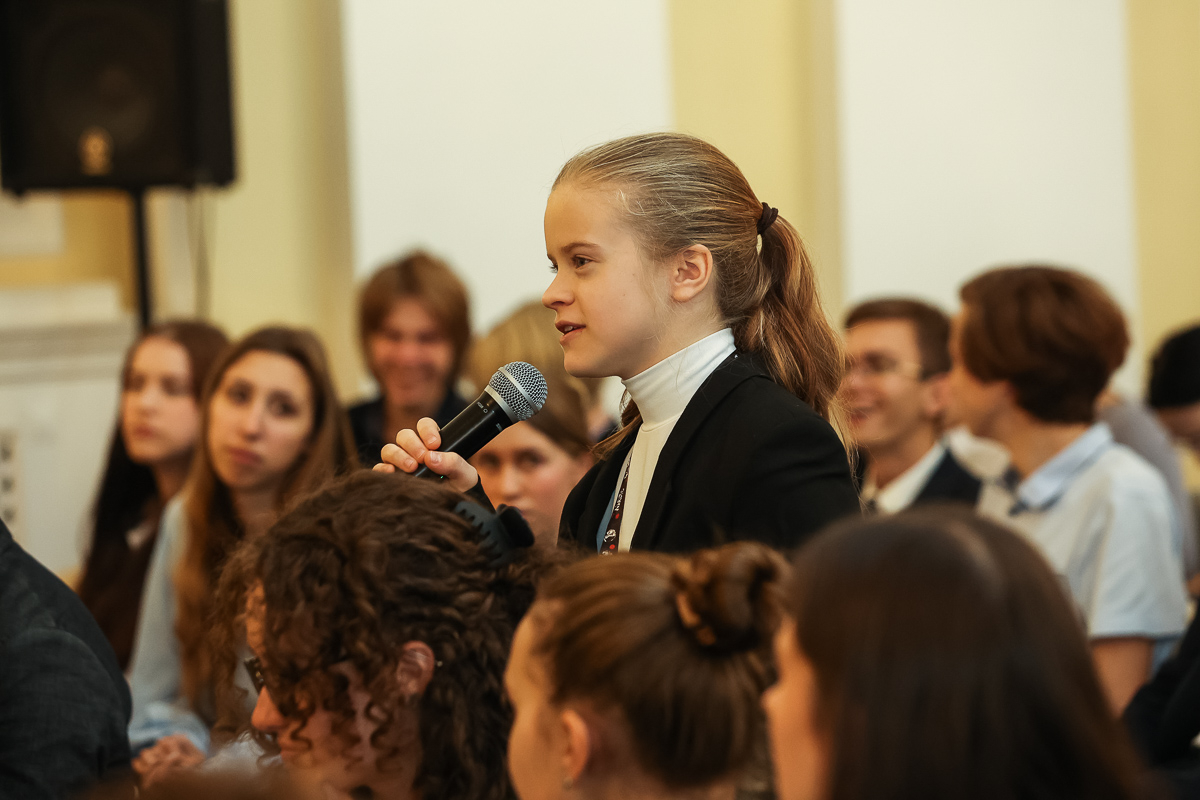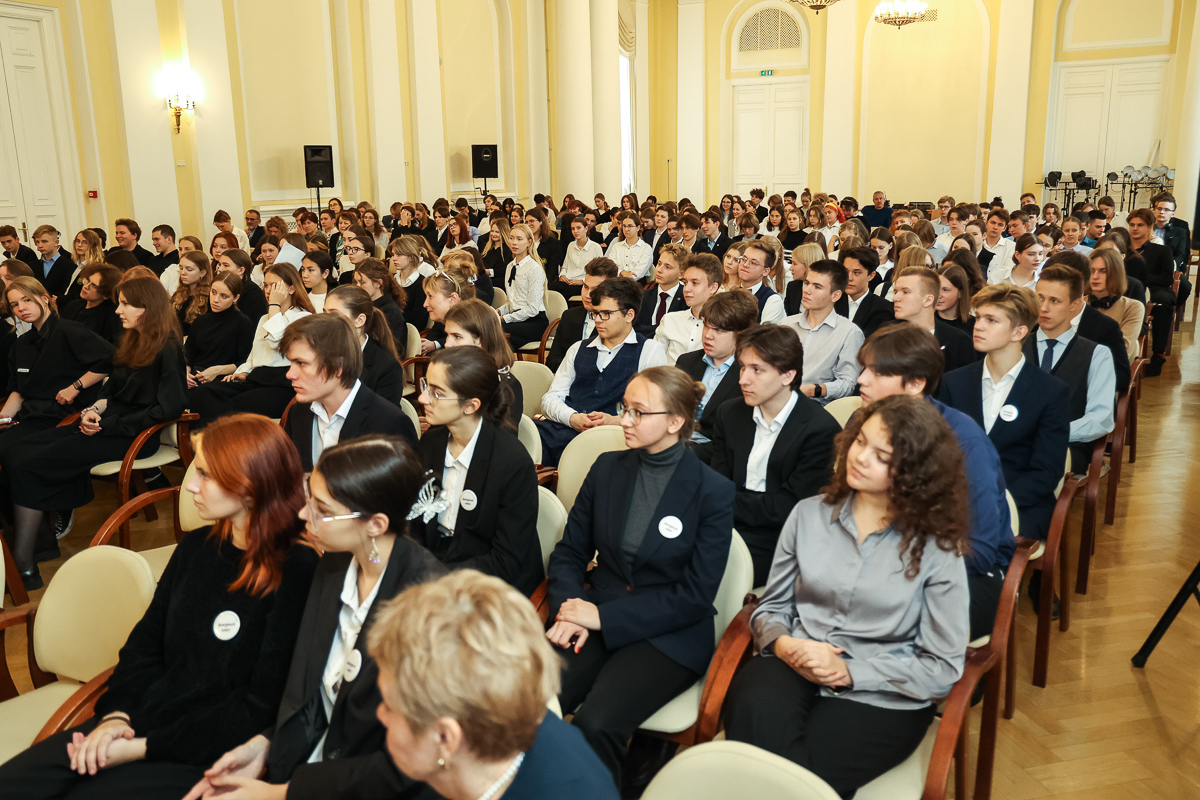Rector of SPbU held a "golden lesson" for students of the Second Saint Petersburg Gymnasium
The Rector of St Petersburg University, Corresponding Member of the Russian Academy of Sciences, Nikolay Kropachev met with the schoolchildren to tell them about university traditions, SPbU’s scientific achievements and to give them advice on admissions.
Nikolay Kropachev began by noting that the key word to describe St Petersburg University is "traditions": for centuries, traditions have underpinned SPbU research and teaching and permeate every aspect of university life. Intellectualism and respect for those who have gone before also play an important role, and the history of the country — early and modern, with which the history of the university is closely intertwined — lives on in its corridors and classrooms.
The Golden Lessons project has been running in the Second Gymnasium for several years. The participants are well-known public figures, representatives of science and culture, who talk to middle and high school students about different professions, run business games and give master classes.
‘I’m sure you’ve all heard of St Petersburg University. A few years ago, we carried out a survey, the results of which showed that one in four of the city’s residents identifies with the SPbU. Why is that? Some citizens of St Petersburg are our alumni, some have dreamed of studying here, and some want their children to study here. This link between the city and the university is unbreakable,’ said Nikolay Kropachev. ‘In less than four months, on 8 February 2024, SPbU will be 300 years old. Generations of rectors and faculty change, but the University lives on’.
The most important achievements of SPbU are the successes of its students, scientists and alumni, the rector emphasised. The winner of the 2023 Nobel Prize in Chemistry, Alexey Ekimov, who graduated from SPbU in 1967, worked at his alma mater for a long time, and today his work is being continued by his colleagues at the University. St Petersburg University is also actively developing other areas of research: in 2018 the Pirogov Clinic of High Medical Technologies became a part of SPbU, and today every second scientific publication in St Petersburg in the field of medicine is published by the University’s scientists. SPbU is also an important digital centre. In 2022, a decentralised system for the exchange of interbank financial messages — the domestic analogue of SWIFT — was developed on the basis of the The Distributed Ledger Technologies Centre, while the CryptoVeche remote voting system is used by the Government of the Russian Federation, the Supreme Court, and dozens of universities and scientific organisations in the country.
Today, SPbU’s Gorky Scientific Library, which contains more than 7 million volumes, and the Research Park, with high-tech equipment worth more than 7.5 billion roubles, are open to the university’s scientists and students. All these resources are also available to international researchers and even schoolchildren can use them for their research. The resource centres also offer guided tours, talks and masterclasses for children, as well as hands-on lessons in the laboratory experimental area.
In Nikolay Kropachev’s opinion, it is the students who are responsible for the creation of many of the university’s modern traditions. At their initiative, SPbU organised separate waste collection and clean-up days in the Botanical Garden. The law students are active volunteers: for almost 20 years, they have regularly visited two orphanages to provide support and care for the children. And, as the Rector of SPbU noted, any new tradition can be created if the students want it.
Among Nikolay Kropachev’s many awards is the Anatoly Koni Medal, established in memory of the eminent jurist. Anatoly Fedorovich was a pupil of the Second St Petersburg Gymnasium and later became a student of St Petersburg University.
Students of the Second Saint Petersburg Gymnasium collected more than 100 questions for the Rector of SPbU, from which they selected some of the most interesting and topical ones and asked them during the meeting. Schoolchildren were interested in how today’s students are different from those of previous years, whether there are plans to open new educational programmes with an Asian Studies component, whether the University helps to find internships, whether SPbU has construction teams, and also asked for advice on admissions.
Nikolay Kropachev told the students that the choice of specialisation should be carefully considered. ‘It is not uncommon for high school students to choose the University with the expectation of guaranteed success after graduation, and many applicants enrol in law programmes because they dream of becoming the country’s president.» However, studying at SPbU is not easy. There are examples of senior executives who have studied the University’s undergraduate programmes for more than eight years, combining study and work. But later, by putting what they had learned into practice, they were able to achieve great success in their careers’.
Today, St Petersburg University offers more than 500 educational programmes. Many of them are developed at the intersection of different sciences, through the efforts of educators from multiple disciplines. For example, "Bioinformatics" combines fields such as biology, medicine, genetics, mathematics, big data and others. Programmes with an Asian Studies component, which were introduced at the University less than ten years ago, are also interdisciplinary: "Law (with Advanced Studies in Chinese Language and Law)", "International Management", "Tourism" and others.
A council of business representatives and leading experts in the relevant fields of knowledge is established for each educational programme. Future employers provide SPbU students with topics for their term papers and theses, and for the past five years they have been participated in degree examination boards, helping to continually improve the quality of education. This is why, as the statistics show, the University’s graduates are always successful in the labour market.
The Rector of the SPbU concluded the lesson by saying that the decisive factor in choosing a future profession is how much you want to devote yourself to it. At the SPbU Career Centre , applicants can find out about interesting fields of study and get a professional assessment of their skills. However, it is necessary to start career guidance not in grade 11 but at least two years before graduation in order to have time to prepare well.


